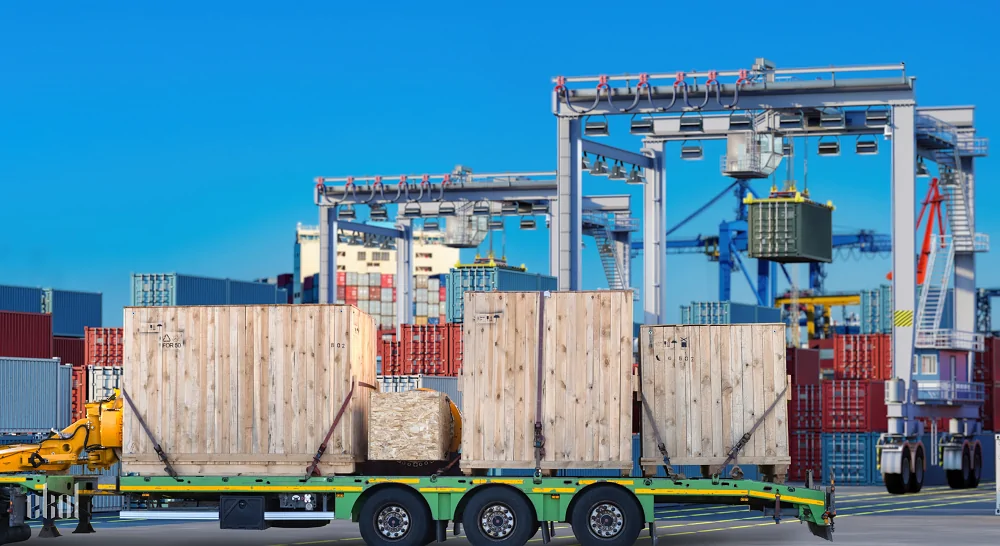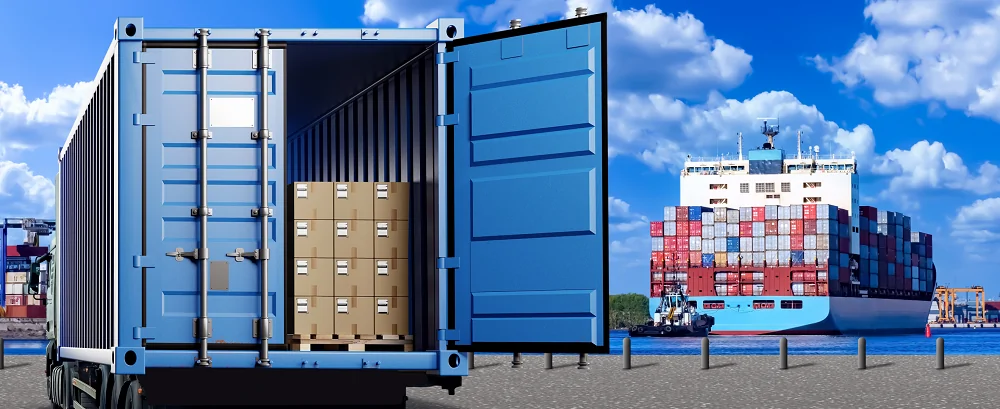How to Avoid Delays in International Shipments: Risk Management Strategies

Global trade is developing extremely rapidly, so companies working with foreign partners must ensure stability and punctuality in the delivery of goods. Any deviation from the schedule can lead to contract disruptions, financial losses, and a decline in trust. To prevent this, it is necessary to assess potential risks in international shipping in advance and develop a well-thought-out transport strategy.
Main Causes of Delays in International Shipments
In the practice of logistics companies, typical situations that slow down the movement of goods often recur. Causes of delays in cargo delivery include both human factors and external conditions:
- Errors in customs documents. Incorrectly filled declarations or missing certificates often lead to downtime.
- Unstable operation of terminals. Congestion at borders slows down transportation.
- Changes in regulations. New customs rules or tariffs require additional time for verification.
- Seasonal loads. During peak periods, the number of orders increases, which affects the speed of their processing.
- Insufficient interaction among logistics participants. If the carrier, forwarder, and customs broker do not act in sync, this causes delays in international shipments.
Transportation requires maximum accuracy.
Ekol specialists note that even a minor error can stop a container for several days, so cooperation with an experienced partner is the key to supply stability.
Impact of Delays on Business and Logistics Processes
The main consequences of expedition delays:
- Production stoppages. When raw materials or components do not arrive on time, this leads to supply schedule violations, penalties, and loss of clients.
- Deterioration of business reputation. Late delivery reduces the level of trust between partners.
- Increased costs. Idle transport or cargo in ports leads to the need for additional funding for storage, container rental, insurance, and customs services.
- Disruption of logistics routes. Due to changes in ship or airplane schedules, planned routes must be rebuilt, which increases the burden on logistics departments.
- Time lost on coordination. Instead of developing the business, companies are forced to spend resources controlling processes and resolving unforeseen situations.
- Need to implement modern technologies. To minimize consequences, businesses actively use real-time cargo tracking systems.
Any delay in international shipments creates a chain reaction affecting the company’s financial results and the stability of its partnership relations.
Risk Analysis in International Logistics
Competent analytics help companies understand how to avoid delays in international shipments, reduce costs, and ensure supply stability even under challenging global market conditions.
Risks can arise at any stage of the logistics chain. Regular monitoring and assessment allow potential problems to be anticipated and promptly addressed.
Successful companies implement a risk management system:
- Analysis of past shipments;
- Deadline control;
- Forecasting situations that may affect delivery.
An analytical approach to risk management is an integral part of effective international logistics. It ensures transparency, predictability, and trust among all participants in the process.

Route Planning and Choosing Reliable Partners
To avoid unnecessary time and cost expenditures, the route should be carefully planned. It is important to consider:
- mileage;
- road conditions;
- traffic load on routes;
- operation of customs points.
Well-planned routes and alternatives ensure timely delivery and stability in logistics processes. Cooperation with a professional carrier transfers responsibility for this part of the work to them and helps optimize costs.
When choosing a logistics partner, it is important to ensure that the company has practical experience with your type of cargo and shipping direction. A reliable operator offers a full range of services: from document preparation and customs support to cargo insurance and the ability to track the route online.
The Role of Documentation and Customs Clearance
It is important to constantly monitor updates in customs rules and involve international law specialists.
Customs procedures are one of the most important stages of logistics. It is not enough to simply prepare a declaration — requirements of both the sending and importing countries must be considered. For example, Ukraine has strict rules for product certification, and violations can lead to shipment delays at the border.
The professional logistics operator Ekol provides consultations and support during document preparation, which helps avoid unforeseen delays.
Use of Modern Technologies for Transport Monitoring
Today, international logistics is unthinkable without a delivery tracking system. Key monitoring tools include:
- GPS monitoring, which allows tracking the movement of cargo;
- SMS and email notifications, informing about each stage of transportation;
- An online portal, where all documents, routes, and the current status of shipments are collected.
Electronic monitoring systems help coordinate all stages in real time.
Risk Minimization Strategies in International Shipments
Key approaches to reducing risks include:
- Obtaining insurance even for low-value cargo to avoid losses in unforeseen situations.
- Checking the transport company before cooperation: client reviews and experience speak louder than advertising.
- Choosing routes with a minimal number of customs crossings reduces travel time.
- Planning shipments in advance, especially during peak periods.
Thanks to a systematic approach to risk management in logistics, companies achieve safe, timely, and economically justified transportation of goods in any direction.
The Importance of Communication Among All Supply Chain Participants
Effective interaction among all parties involved in transportation plays a crucial role in meeting delivery deadlines. A logistics operator must ensure a coordinated communication system with clients, carriers, and customs authorities. Such an approach allows quick responses to potential difficulties, avoids delays, and maintains the continuity of the logistics chain.
FAQ
What role do customs procedures play in the speed of cargo delivery?
Passing customs control significantly affects the pace of cargo transportation: it can both shorten delivery time and cause long delays.
How to prepare documents for international shipments without errors?
All fields must be correctly completed: company names, addresses, contact details, quantity, and characteristics of goods must be accurate. It is also necessary to verify that the documents meet the requirements of the destination country.
What are the most common mistakes in preparing documentation for international shipments?
Typical issues include missing required documents, discrepancies between stated and actual data, or incorrect payment of taxes and customs duties.
read more










